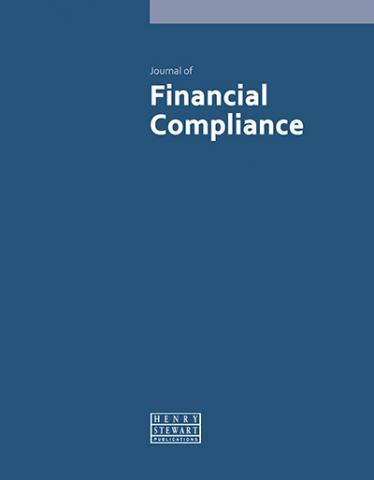"My ambition for the Journal of Data Protection & Privacy is for it to further develop the foundations, tools and methodologies for Privacy by Design, and to help getting them applied in practice."
Crypto-assets: Commodities under European financial markets law?
Abstract: This paper sheds light on the legal nature of crypto-assets in capital markets law. There is currently no generally accepted legal definition of the terms ‘crypto–assets’ or ‘cryptocurrency’ aside from the term ‘virtual currency’ in the 5th Anti-Money Laundering Directive.
While it is clear that cryptoassets performing payment functionalities are not considered legal tender in the sense of government sanctioned currencies, the question remains whether or not crypto-assets should be considered goods in the context of the European fundamental freedoms and/or commodities in the sense of European capital markets law.
This classification, however, bears significant ramifications in various legal areas that are explored in this paper. It will be shown that crypto-assets are goods subject to the freedom of movement of goods guaranteed by articles 28 to 37 TFEU (Treaty on the Functioning of the European Union).
On the other hand, the authors propose that crypto-assets should not be considered to fall within the definition of commodities as used in capital markets law (eg, MIFID [Markets in Financial Instruments Directive] I and II, Benchmark-Regulation, etc) and are therefore not subject to the regulatory consequences of this qualification, such as potential regulation of market places as commodity exchanges or regulatory reporting obligations related to commodity derivatives.
Key words: crypto-asset, cryptocurrency, freedom of movement of goods, freedom of movement of capital, commodity; MIFID (Markets in Financial Instruments Directive)
Ralph Rirsch is a supervisor at the Austrian Financial Market Authority in the Department for Integrated Conduct Supervision of Banks.
Stefan Tomanek is a legal expert in the Department for Prudential Supervision Asset Management, Prospectus, Consumer Information at the Austrian Financial Market Authority (FMA).



